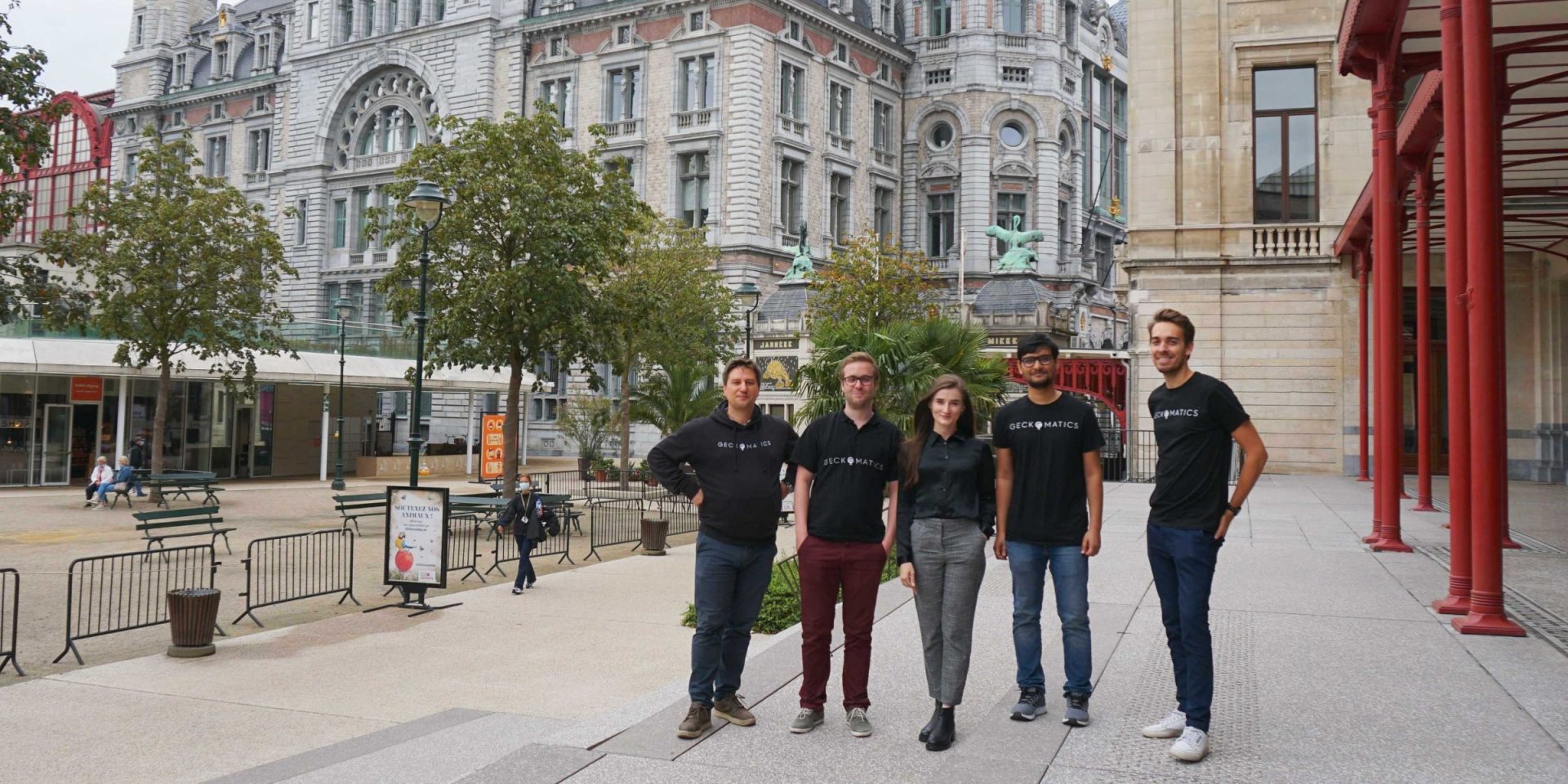One-Stop-Shop of Mobile Mapping
Geckomatics, an AI startup offering tools to help cities understand their infrastructures more quickly and cheaply, and also a member of our newest cohort on the Space Endeavour Accelerator.
We have had the privilege to chat to Bert Cattoor, Co-Founder & CEO, about how his technology is revolutionising mobile mapping in large scale projects.

Who are Geckomatics?
Geckomatics is an Artificial Intelligence startup that creates tools to create maps of physical assets. If you are not familiar with mobile mapping, think of Streetview. So what we do is to give our customers the power to create their own 360º images of public space. But here’s the kicker: on top of that, our software is able to understand what is actually in those images. So that enables our users to create inventories of objects like traffic signs, potholes, trees, you name it – if somebody is interested in it, it can be put on a map. If you need data and insights about infrastructure, we are your one-stop-shop.
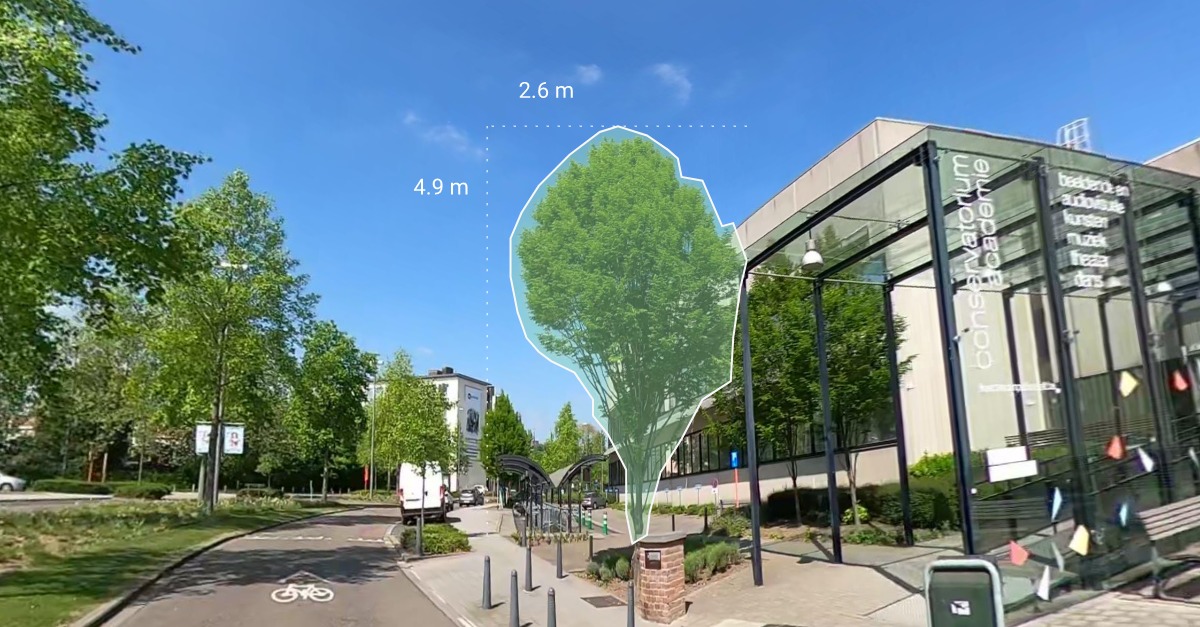
How are you utilising space technology in your solution and what are its use cases?
In order to create this data, we needed to design new hardware because there is nothing available off the shelf today that fulfils our needs of high quality, affordability and user-friendliness. Other than traditional mobile mappers, we do not own a fleet of mapping vehicles nor do we employ operators. Instead, we ship a mapping camera to our customers anywhere in the world they need it. It can easily be attached to any vehicle so everybody can map an area. For this to work, we need to have very accurate geopositioning so naturally, we use GNSS technology. It’s not enough that you are able to automatically identify an object, you also need to have its geocoordinates within an error of less than 20 cm or sometimes even smaller. So we have very accurate GNSS chips and other sensors, as well as very powerful proprietary algorithms that enable such accuracy.
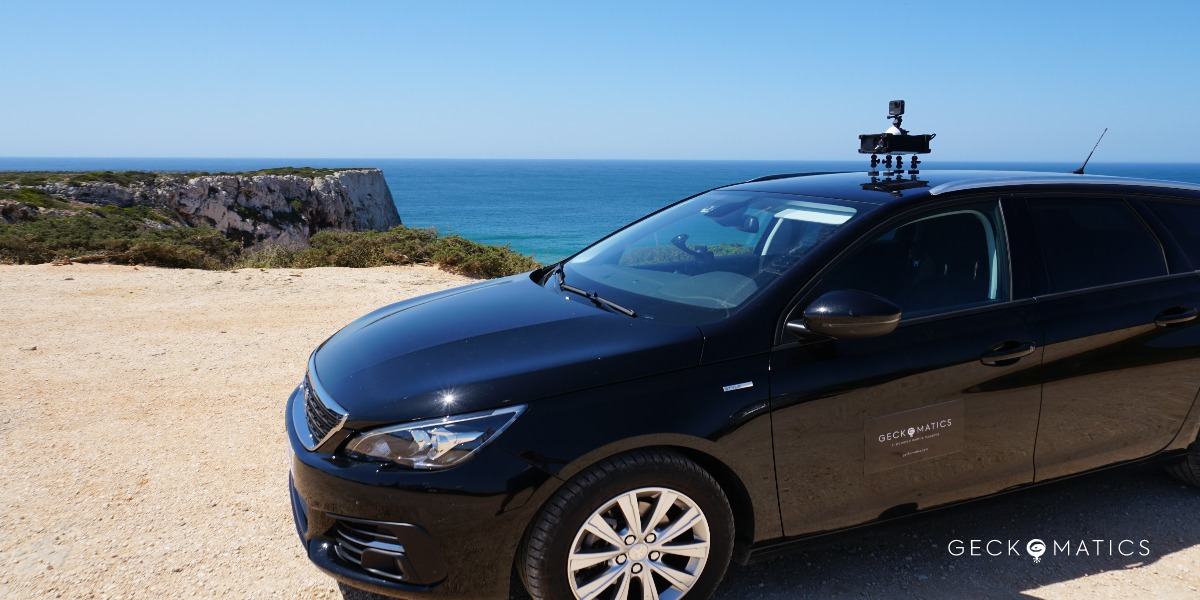
What problem are you solving?
The market for geographical information is growing strongly because there is an increasing demand for high quality, up-to-date geodata for an expanding number of business processes. However, in spite of this growing demand, traditional suppliers are not able to keep up. If you talk to users of geographical information, one of their biggest frustration is probably that this data is obsolete, incomplete or inaccurate. The root cause is that mapping is a rather traditional industry that hasn’t evolved enough – everybody knows those mapping vehicles with very expensive equipment. These are so complicated that they require a trained operator. The hardware is extremely expensive. So such data is naturally going to be very expensive. So Geckomatics was founded to solve this scarcity by automating a lot of human tasks using AI.
We are excited to have you on our Space Endeavour Accelerator. What are you hoping to achieve during the programme?
I always like to network. It is exciting that I can meet so many smart people who are innovating in the same technology space as we are. There is always opportunity to learn. I am also a big believer in serendipity. Opportunities come in all shapes and sizes and sometimes in unexpected ways. It is by getting out there, by meeting new people, that the network effect gives you more opportunities. This can be many things: learning some new insights, finding an employee, spotting a potential customer, getting your brand out there.
What is the one advice you have been given that you’d like to give to other startup founders?
As a founder, almost every action you take involves selling. Since you start with nothing, you have to sell a dream to your co-founder. You have to sell a promise to your first employees who probably are contemplating a steady job at an established company. You will have to convince your parents and family why you’re not having a normal job and no income for months. You will have to sell your idea to an accelerator, to a bank, to a business angel. You will find that you have to win people over all the time. And of course, yes, at one point you will also have to sell to your first customers. So if you want to succeed, you will have to become very good at sales – but the good news is that if you are passionate about your project you’re basically halfway there. Always remember that selling is at its core an exchange of value. So make sure you understand what all those people value that you can give them.
